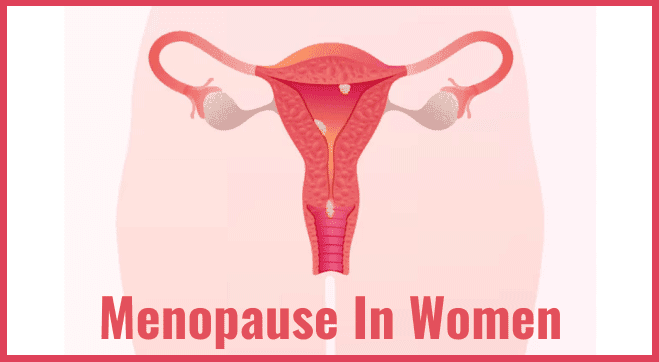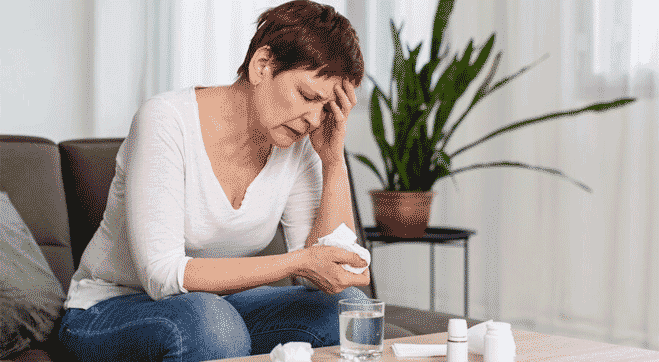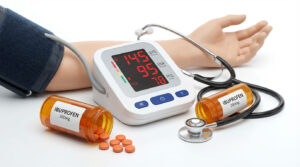What is Menopause (Climacteric)?
Menopause, otherwise referred to as female menopause, is a condition in which progressively ageing females don’t experience menstruation for 12 consecutive months. The signs and symptoms of menopause may vary from female to female and so does the menopause age. While some females may experience menopause in their mid 40s, some do in their mid 50s.
Why Does Menopause Happen?
Menopause is an inevitable phase of a female’s lifecycle as it is a natural occurrence. As women age, ovaries tend to lose their follicular function and the oestrogen levels in the bloodstream decline. As a result, women will experience fluctuations in their periods in terms of timing, duration, volume of blood flow, etc.
When Does Menopause Starts?
If you are wondering when does menopause start, the response is – it is variable. While most women tend to experience menopause in their mid 40s and 50s, some may experience it before they turn 40 too. In certain instances, women tend to experience menopause in their early 60s too. Despite the varying women menopause age, most women start experiencing menopause symptoms approximately 4 years before their final period.
If you are wondering how long does menopause last, it can last for a minimum of 7 years and maximum of 14 years. The menopause duration depends on the lifestyle factors, the age at which it begins as well as race and ethnicity.
What Happens During Menopause?
Some of the notable effects of menopause on the body include night sweats, hot flashes and weight fluctuations. That said, these effects and side effects of menopause may vary on a case to case basis too.
Stages Of Menopause
While there are no definitive types of menopause, it can be categorised into stages or phases.
The stages of menopause include:
- Premature menopause – Menopause occurs before the age of 40 years in females.
- Perimenopause – It usually begins in mid 40s in women as a response to hormonal imbalance in menopause and may last between a few months to a few years.
- Early menopause – About 5% of women experience this phase of menopause with symptoms, such as hot flashes, vaginal dryness, difficulties in sleep, memory and concentration and other challenges.
- Postmenopause – Signs of menopause tend to last even after the menopause duration.
Did you know:
- About 5% of women experience early menopause between the ages of 40 and 45, and 1% of women experience premature menopause before the age of 40 due to permanent ovarian failure that may be associated with sex chromosome abnormalities
- During menopause, women experience an increased rate of bone loss of 3% to 5% per year for 5 to 7 years
Symptoms Of Menopause
If you are thinking how do you know when menopause starts, the evident symptoms can clue you in. Some of the common and widely observed menopause symptoms are:
- Less frequent menstruation
- Unusually heavier or lighter blood flows
- Vasomotor symptoms, such as hot flashes, facial flushing, night sweats, etc. Hot flashes affect approximately 70 to 80% menopausal women.
- Insomnia
- Vaginal dryness
- Weight gain or extreme loss of weight
- Psychological symptoms, such as depression, and anxiety
- Difficulty with concentration, and memory
- Reduced libido
- Dry skin, mouth and eyes
- Frequent urination
- Sore breasts
- Racing heart
- Headaches
- Urinary tract infections
- Reduced bone and muscle mass
- Stiff joints
- Thinning hair
- Abnormal hair growth on the face and across the body
While some of the signs of menopause might be confused with other health conditions, staying vigilant helps you to seek on-time diagnosis and interventions.
Causes Of Menopause
Female menopause is a natural occurrence and bodily function, which is associated with progressive ageing and decline in the reproductive system functionalities.
Before the onset of menopause, the ovaries tend to experience a decline in their follicular function, which affects the female egg production and release cycle, causing fluctuations in menstruation. Rapidly declining oestrogen levels due to age are also considered a key cause of menopause.
Some of the other causes of menopause problems include:
- Surgery
- Radiation therapy
- Chemotherapy
- Pelvic injury
- Hormone treatments
- Gender transition surgeries
Who are at Risk Of Having Menopause
While menopause problems are a part of the female’s life, there are certain risk factors that can contribute towards it too, such as:
- Smoking, and other sedentary lifestyle choices
- Family history – Women with their mothers, siblings and other relatives experiencing premature and early menopause are at a higher risk.
- Cancer treatments, such as chemotherapy and pelvic radiation therapy
- Hysterectomy – Removal of the uterus but not the ovaries
Complications of Menopause When Left Untreated
Complications of menopause are:
- Valvovaginal atrophy – Decreased estrogenization of the vaginal tissues that cause symptoms, such as vaginal dryness, irritation, and soreness.
- Dyspareunia – Urinary incontinence challenges – Frequent urination, sudden urge to urinate, and pain during urination
- Osteoporosis – Decrease in bone mass and bone mineral density
- Mood changes
- Cardiovascular disorders
- Abnormal weight gain
Diagnosis Of Menopause
Menopause diagnosis methodologies involve:
- PicoAMH Elisa diagnostic test – This test helps your healthcare provider determine whether menopause has begun
- Blood test to measure oestrogen levels in the bloodstream
- Saliva test
- Over the counter urine test
- Thyroid function tests
- Lipid profile tests
- LFT Blood Test
- Kidney function test
- Tests to gauge the levels of hormones, such as testosterone, progesterone, prolactin, estradiol, and chorionic gonadotropin
Management & Treatment Of Menopause
Menopause problems are a part of life for women, however, these can be managed with the right interventions in terms of medical treatments and lifestyle changes.
Medical Treatment
Menopause treatments include:
- Hormone treatments
- Oestrogen therapy
- Oestrogen and progesterone therapy
These hormone treatments have a set of side effects, such as:
- Endometrial cancer
- Gallstones
- Blood clots
- Deep vein thrombosis
- Stroke
- Pulmonary embolism
Considering the myriad of side effects of menopause and hormonal treatments, women may choose to use lubricants to address vaginal dryness and irritation and supplements to manage other menopause symptoms. Consulting with the healthcare provider is highly recommended before opting for hormonal treatments.
Home Remedies and Lifestyle Strategies
Management of menopause usually involves making lifestyle changes, such as:
- Keeping yourself calm and comfortable
- Opting for a sustainable exercise regime
- Making healthy dietary choices
- Managing stress and sleep-related concerns optimally with home remedies
- Avoiding sedentary lifestyle choices, such as alcohol consumption and smoking
- Having loved ones or support groups to communicate challenges and seek advice
A Note From HealthcareOnTime
Female menopause, though an inevitable process, need not be uncomfortable and distressing for the women. Watching out for menopause symptoms, and understanding its causes can help in seeking the right and on-time menopause treatment.
Staying vigilant and informed is crucial. HealthcareOnTime offers several Hormone Test for Women and health screenings, including other at-home lab tests like thyroid tests , lipid profile tests, kidney and liver function tests, hormone imbalance blood tests, which can help you gauge your overall health profile and assess the risks of developing a premature menopause.
Disclaimer: The information listed here is strictly for educational purposes and is not intended to offer personal medical advice. Do consult your physician for any questions you may have regarding a medical condition. It’s not advised to disregard professional medical advice or delay in seeking it because of any information listed here. The Nutrition Source does not recommend or endorse any products.
Sources
Ref Links:









